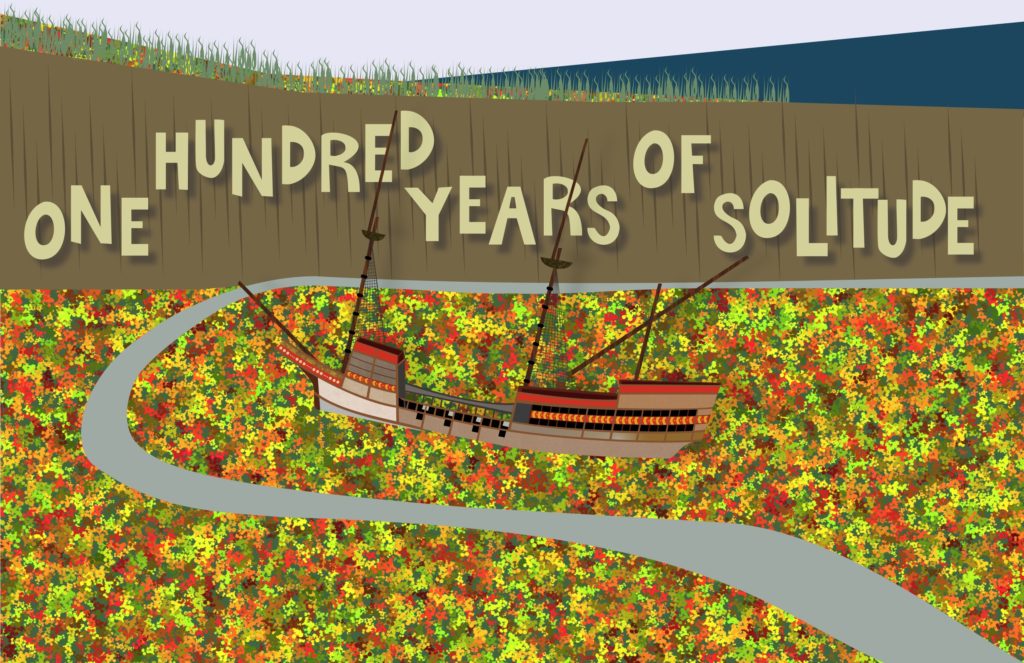

The critic Harold Bloom considered One Hundred Years of Solitude to be a dense work: “There are no wasted sentences, no mere transitions, in this novel, and you must notice everything at the moment you read it.” Being the first of several novels in a career that would culminate in author Gabriel Garcia Marquez’s receiving the Nobel Prize for Literature in 1982, One Hundred Years of Solitude is so highly regarded that some have said that it, along with the Book of Genesis, should be required reading for the entire human race.
Published in 1967 in Spanish and translated into English in 1970, One Hundred Years of Solitude has sold over 50 million copies worldwide. The novel is a prime example of magical realism, a style where supernatural elements take on the mundane, and vice versa. While the story addresses political and social realities of Columbia in the early 20th century, the book’s most profound observation concerns human pride and how we, as humans, make the same mistakes over and over and over again.
One Hundred Years of Solitude has been on my reading list for about thirty years. I recall, as early as my senior year in high school, people talking about how good the book was. Honestly, I didn’t catch on to what was really going on in the book until the last chapter. Most of the men are named either Jose Arcadio or Aureliano and there’s a gypsy named Melquiades who keeps showing up even long after he dies. I won’t ruin to book for you, but once everything comes together in the very last sentence, One Hundred Years of Solitude achieves that thing that deep literature does–it gives you a glimpse into a truth otherwise unseen.
My favorite image in the book is the Spanish Galleon that somehow ran aground miles from the ocean. I imagined that, over a hundred years, flowers would have grown all around it. Or, perhaps when the patriarch of the novel, Jose Arcadio Buendia, died and it rained yellow flowers, maybe that storm reached as far as the Galleon. I made a vector drawing of how I imagined it.
With One Hundred Years of Solitude being so well regarded and influential, I was amused to identify some of my favorite songs as probable allusions to the novel. Were “I Come from the Water” by the Toadies and “Banana Co.” by Radiohead inspired by One Hundred Years of Solitude? Maybe. I can’t hear those songs now without thinking of Melquiades and the Banana Plague.
